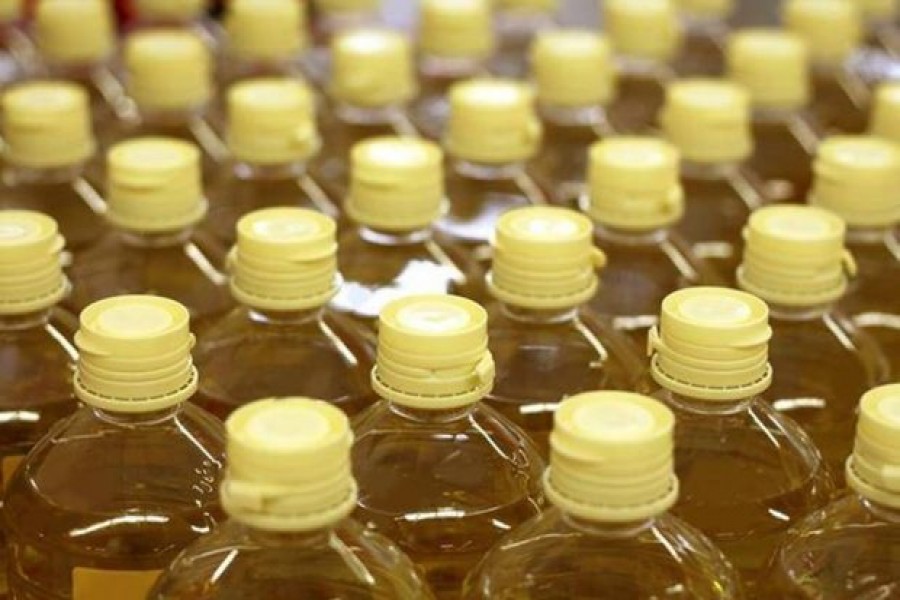As always, the blame is on a 'few' unscrupulous businessmen for the atrocious price hike of cooking oil, particularly of the most consumed varieties- soybean and palm oil ---in recent weeks. This is as though those few are potentially capable of dictating the terms of domestic edible oil market. That this is a kind of poor euphemism and that the price spiral is orchestrated by a powerful syndicate is clearly evident from the sudden scarcity of this essential kitchen item all over the country. The Ukraine war believed to have an impact on edible oil prices by way of supply shortfall in the coming days, is not supposed to trigger the fallout so early for consumers here. Obviously an artificial crisis, the unrelenting price hike must be tamed as much as possible with whatever mechanism the government can resort to. It may be noted that the edible oil market went volatile from February 26 following the oil refiners' proposal to raise maximum retail prices of edible oils at the beginning of the Russia-Ukraine war.
The apex chamber of the country the Federation of Bangladesh Chambers of Commerce and Industry (FBCCI) has sought withdrawal of VAT on imported edible oil for the next three months to bring normalcy in the unstable market. In the wake of price hike of soybean and palm oil to the extent of 20-30 per cent in the past two weeks, the call for VAT waiver as a short-term measure seems appropriate at this critical time. The FBCCI's suggestion, it appears, is in line with the action taken by neighbouring India to contain edible oil prices. Referring to the Indian action of adjusting VAT and Customs duty on edible oil three times in recent months, FBCCI president urged the government to go for such an adjustment to bring stability in the market. He also said the government should introduce bond system to release imported edible oil to stop price manipulation. Typical regulatory means like fixing prices has never worked and is not at all likely to be of any use now. All the government can do is to monitor the market situation in order to remain updated of the latest developments. However as an effective measure of containing the price escalation, there is hardly any choice but to lower the landing cost. Suggested by the apex chamber, this can best be done by a substantial cut and adjustment of VAT and import duty.
Bangladesh is overwhelmingly dependent on import of edible oil accounting for 95 per cent of the total consumption. The country reportedly imports approximately 2.5 million tonnes of oil, comprising mainly soybean and palm oil-- the latter having the major share. Since supply chain due to the Ukraine war is likely to suffer major disruption, even if the war is hopefully over within a short time, the edible oil market will bear the brunt for a longer time. Thus the looming prospect of a lingering crisis necessitates quick decision on the part of the government.


